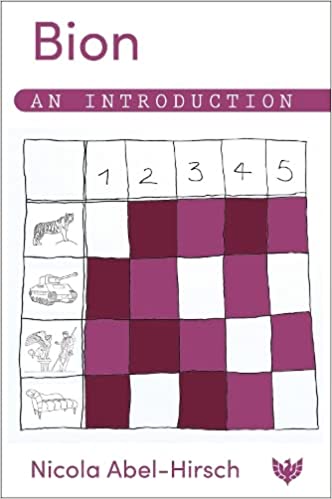The Mystery of Emotions: Seeking a Theory of What We Feel

Book Details
- Publisher : Karnac Books
- Published : March 2023
- Cover : Paperback
- Pages : 240
- Category :
Psychoanalysis - Catalogue No : 96874
- ISBN 13 : 9781800131743
- ISBN 10 : 9781800131
There are currently no reviews
Be the first to review
Psychoanalysis is, above all, the science of the emotions but, as yet, there is no single accepted theory of affects. Instead, there are many, all of them too limited, based, as they are, on idiosyncratic introspection. R. D. Hinshelwood presents an extensive scoping of the prominent theories from the philosophy of mind and academic psychology alongside a review of psychoanalytic ideas based on instinct theory or object relations.
This wide review of divergent theories from various disciplines helps to mitigate variation and identify commonalities. From this scoping exercise, Hinshelwood creates a form of qualitative meta-analysis which enables the most common dimensions to come to the fore - namely, 113 features of affects form a more general theory with four dimensions. This more systematic view offers an affective 'space' as a model for thinking about the nature of affects, their origins, and their consequences. At the same time, Hinshelwood retains the personal. He starts with the memory which initiated his quest to understand how much we are rooted in the experience of our feelings and includes a chapter documenting his own idiosyncrasies to bring his own bias to the fore. In this way, the book preserves the especially personal and intimate quality of its universal topic.
Reviews and Endorsements
Emotions have been the Cinderella of philosophical, psychological, biological and psychoanalytic theories of the person. This, despite their being central to our subjective experience of ourselves and our relations to others. Bob Hinshelwood has written a masterful and lucid account of theories of emotion over 4000 years, and synthesised them into clusters of agreement and overlap. He goes on to evolve his own highly original formulation of emotions that captures both their subjective and bodily experience and their communicative function as existing in a metaphorical 3D mental space.. As in his previous writing, Hinshelwood describes complex ideas with great clarity. This important book will be of interest to philosophers, psychologists and psychoanalysts in providing an outstandingly clear guide to a central aspect of what it is to be human.
Richard Rusbridger, training and supervising analyst and child analyst, British Psychoanalytical Society, and honorary reader, UCL
‘The Mystery of Emotions: Seeking a Theory of What We Feel introduces a bold thesis: affects which have often seemed to be like an accumulation of mess of whatever is left over after the more well-thought processes have been used are more seriously meaningful. R. D. Hinshelwood takes us on a panoramic tour of the realm of emotions starting with the Greek philosophers through modern technology and artificial intelligence and up to politics, commerce, and psychoanalytic perspectives. The text is well organised, astute, and informative, and I would highly recommend it to my colleagues and students.’
Aner Govrin, professor and psychoanalyst, Bar-Ilan University, Israel
R. D. Hinshelwood has a distinguished place in psychoanalysis and related fields. Deeply rooted in clinical practice, he has, over many years, encouraged a respect for objective knowledge of the subjective world, while retaining the aliveness of the psychoanalytic process, and he has shown us how to get to it. In this book, he applies his distinctive acumen to affects, the heart of human experience. What better place to grasp these dimensions together. We live in the immediacy of affects, they impel us to think and judge, we are social through them, and they are rooted in our bodies. Hinshelwood masterfully guides us into knowing them.’
Karl Figlio, clinical associate, British Psychoanalytical Society, and senior member, Psychoanalytic Psychotherapy Association
Hinshelwood presents a highly original model. His approach is methodological and analytical, [...] This analysis provides an intriguing perspective that is of intellectual value.
Kay Hoggett, MBACP (Accred), integrative counsellor, coach, and supervisor
Distinguished psychoanalyst and prolific author R.D Hinshelwood aims to grapple with feelings in an astonishingly novel form. [...] Ultimately, Hinshelwood’s attempt to place cognition and affect "in the same room", as he puts it, is bold, and vast in its originality and clarity. We see emotions examined with great breadth depth and cogency, but also revealed anew. Emotions, we see here, need no longer be bewildering squads requiring order, but experiences given new shapes.
Jennie Hogan, Psychodynamic Practice, 2024
Table of Contents
Acknowledgements
About the author
Prologue: A happy little girl
Part I. Introduction – What, and who for?
1. Theories and confusions
2. What we already know
3. Affects and cognition
Part II. The hard work – A method
4. ‘Discoveries’ of four disciplines
5. Clusters and dimensions
6. A 3D space
7. Congruence and complementarity: The social role of affects
8. Exchange and being
Epilogue: What are our results?
References
Index
About the Author(s)
R.D. Hinshelwood is a member of the British Psychoanalytical Society, and currently holds the post of Professor of Psychoanalysis at the Centre for Psychoanalytic Studies, University of Essex. He is a Fellow of the Royal College of Psychiatrists, and previously was Clinical Director of the Cassel Hospital in Richmond. He is a past Chair of the Association of Therapeutic Communities. Professor Hinshelwood has written extensively on psychoanalysis and founded the International Journal of Therapeutic Communities (now Therapeutic Communities) in 1980 and the British Journal of Psychotherapy in 1984.
Customer Reviews
Our customers have not yet reviewed this title. Be the first add your own review for this title.
You may also like
Bion in the Consulting Room: An Implicit Method of Clinical Inquiry
Joseph Aguayo
Price £28.79
save £3.20
Night Vision: Wilfred Bion's Epistemological Poetics and the Experience of the...
Dominic Angeloch
Price £26.09
save £2.90
Classic Karnac Bookmarks - Complete Set
Price £10.00









